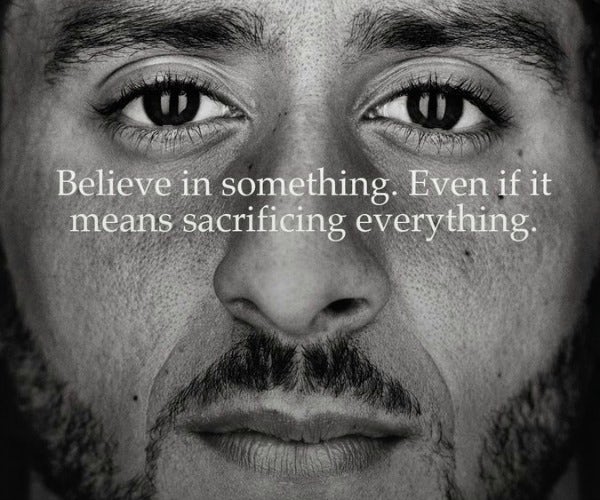Gillette brand takes a hit as ‘#metoo’ ad backfires
The P&G-owned brand has seen consumer perceptions in the UK plummet in the wake of the ad, which has been both criticised and applauded for its attempt to tackle toxic masculinity.
Gillette has seen consumer perceptions, including the key sales metric consideration, tumble in the UK in the wake of its ‘#metoo’ ad, despite the film not actually being aimed at the UK market.
The ad, which launched earlier this week, plays on Gillette’s famous slogan ‘The best a man can get’, replacing it with ‘The best men can be’. Aiming to “celebrate the stories of men making a positive impact and to inspire others in the process”, it shows a compilation of actions often associated with “toxic masculinity” and examples of how men can take action to create meaningful change.
However, the ad has split opinion. While some have praised the brand for tackling an important issue, others have criticised it for its approach and questioned why the razor brand is inserting itself into the debate.
The controversy has seen Gillette make headlines around the world and prompted almost 20 million people to watch the two-minute film on YouTube.
Despite the ad being aimed at a US audience it has had an impact on consumer perceptions of the brand in the UK. And the shift has not been positive.
According to YouGov BrandIndex, Gillette’s buzz score – which is a balance of the positive and negative things people have heard about a brand – has fallen by 5.8 points over the past week to -3.4. That shows more people have been hearing negative things about the brand than positive and takes it from seventh in a list of 45 health and beauty brands to bottom.
Of even more concern for the brand should be that purchase metrics have started to shift downwards. Consideration has fallen by a statistically significant 12 points over the past week to a score of 16.4. However, it is still top of the pile in terms of consideration among razor brands, ahead of Wilkinson Sword, Harry’s and Dollar Shave Club.
Among current customers, Gillette’s score is down 1.9 points to 4.5 although this is not deemed a statistically significant fall. Among former customers it has fallen by 8.6 points to 35.8, although again this is not a statistically significant drop.
This drop in consideration comes despite those considering buying Gillette and those who shave skewing slightly more towards being in favour of brands that are willing to get involved in societal issues, compared to a nationally representative sample. YouGov finds that 31% ‘tend to agree’ and just 21% ‘tend not to agree’ with the sentiment “I like brands that are willing to get involved in societal issues. These figures are 29% and 26% respectively across the British public.
A separate study by Unruly, which tracked the cognitive response of 533 consumers, found that the Gillette ad caused more of an emotional response among consumers than the UK norm. However, not all those responses were in the ad’s favour.
On cognitive response, Unruly found that 13% described their reaction to the Gillette ad as “surprise”, above the norm of 10%, while 7% described it as “shock”, above the 3% ads normally get. However in many cases the response was negative with 15% describing “confusion”, 8% “disgust” and 9% “contempt”. The UK norms for these responses are 12%, 4% and 9% respectively.
However, the Unruly data also suggests this could still play in Gillette’s favour in terms of sales. Both “purchase” and “find out” were three points above normal at 33% and 34% respectively, while “promoters” was four points above a normal campaign at 25% and “favourable” was 11 points up on the average campaign at 40%.
Most people also recognised that the campaign was for Gillette (although many had difficulty spelling its name), with 70% able to name the brand versus 7% who didn’t name a brand, 12% who can’t remember and 2% who couldn’t tell.
Data from Forrester’s Consumer Energy Index backs this up, finding that the ad strengthened emotional ties to the brand by boosting trust, empowering them to overcome challenges and emboldening them to try something new.
However, Anjali Lai, a data analyst at Forrester, believes the ad creative has “missed the mark”. In a blog post, she writes: “The message is clear, but the content belabours it to an extreme. Aligning toxicity with masculinity immediately connotes disease and implies that there is no degree of masculine behaviour we can celebrate in this era of #MeToo.
“Rather than evoke shame, Gillette should fill viewers with hope; rather than a montage of impropriety, the brand should tell a simple but powerful story; rather than attack an identity, the campaign should fuel a desire for us all to contribute to being better.”
For the campaign to be successful long-term, Lai also suggests Gillette will need to follow-through on the promise of the campaign with its overall brand positioning. The company has pledged to donate $1m a year for the next three years to non-profits running US programmes designed to help men achieve their “personal best”. But Lai believes Gillette needs to go further.
“For Gillette to have the effect it intends, the brand needs to make the message real for consumers. Gillette must craft a narrative around the conversation over time and show tangible dedication to living the message it calls for,” she concludes.







